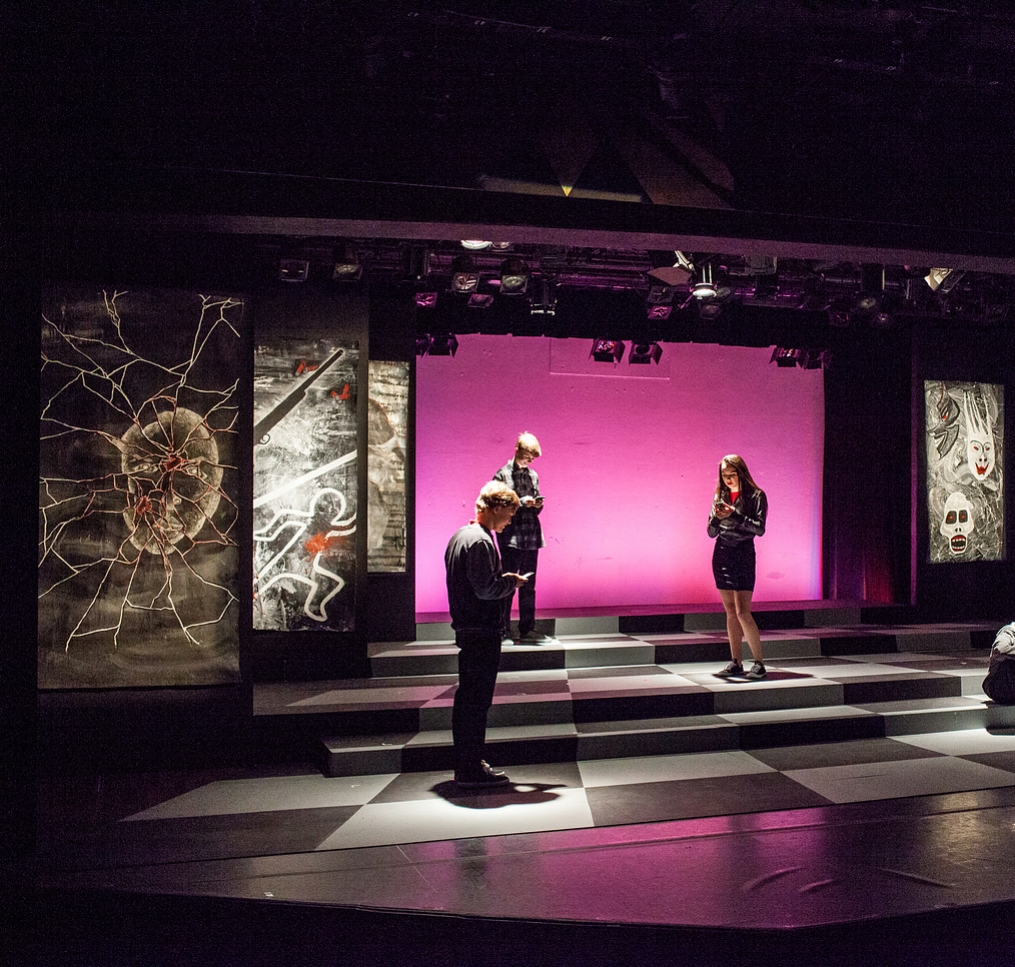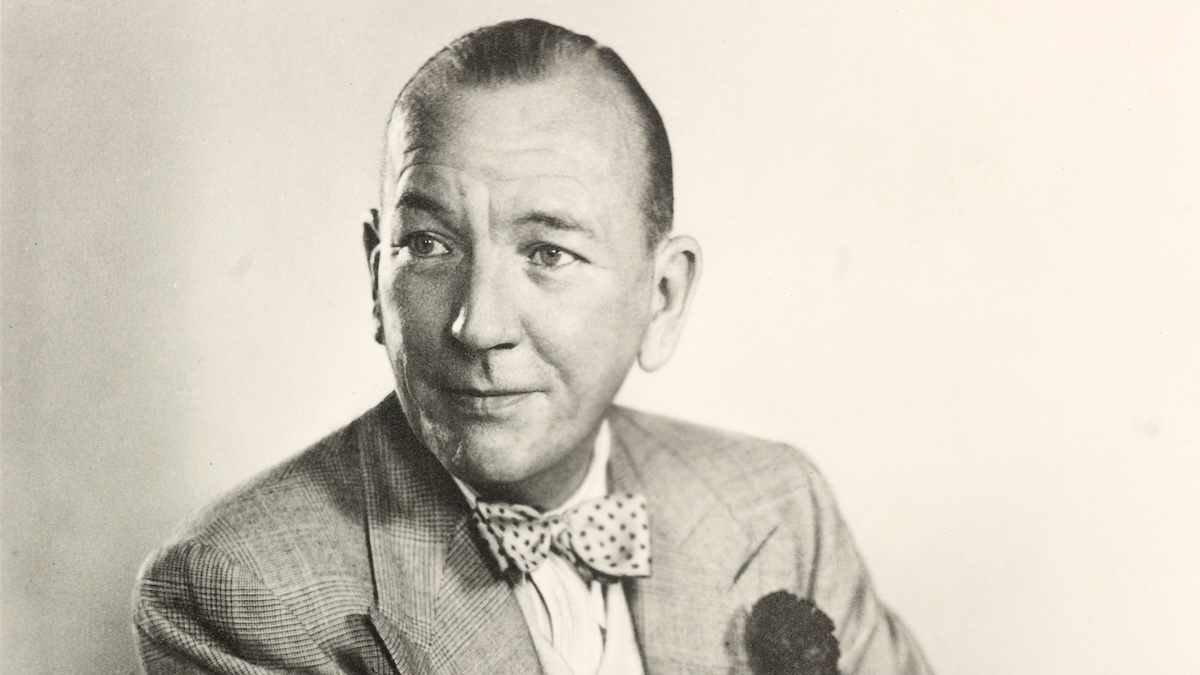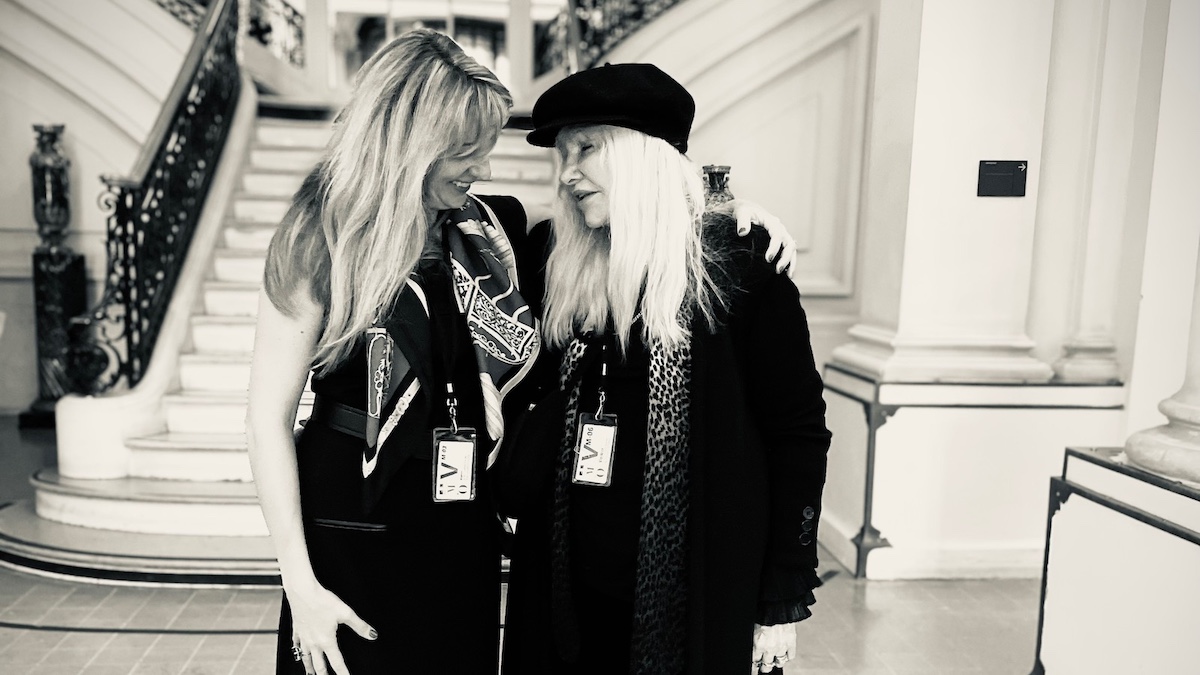
On November 18 at 9:15 p.m., the curtain came down on our high school’s 2017 fall play, O Beautiful, by Theresa Rebeck. The curtain marked the end of a six-month odyssey containing many high points and a few struggles. Overall, the feeling this production elicited was pride. Pride in our school for tackling this highly-charged piece; pride in my cast, who decided to participate in the show knowing they would be faced with the many challenges it presents; and my own pride. You Can’t Take It With You would have been a much easier play to produce — but I know I would not have felt the way I did on November 18 if I had chosen any other show.
My journey with O Beautiful started in May of 2017, as I was struggling to find a show for the fall. Our program had established a show rotation, and this year’s production was to be a current drama. In light of how our country was being challenged by the current administration, I wanted to find a piece with meaning. I also have a few of my own rules when picking a show: One, it needs to have a cast that is equal parts men and women; two, it needs to be able to be produced in our small theater with no fly space; and three, it need to provide a challenge for my actors.
I was coming up blank. In the past, we tackled mental illness and disability with 33 Variations. We produced The Laramie Project, bringing the story of Matthew Shepard and Laramie, Wyoming to our campus. And with Dead Man Walking, we educated our students on the issues surrounding the death penalty. For our 2017 fall play, I wanted to do a show that was equally educational.
I don’t know how he found it, but our tech director emailed me one day and said, “I found this play called O Beautiful; I think you might like it.” After watching some short YouTube clips, I was sold. It was exactly what I was looking for, so I contacted Samuel French and ordered the script. My first read-through was amazing. I was so energized about the political messages contained within the play that the other messages didn’t really affect me. The fact that abortion was such a strong plot line, along with bullying and racism — to name a few — did not sink in. I gave the script to my wife to read, and that is when my honeymoon with O Beautiful ended. Her first comment was that she loved it. But she then proceeded to say she did not like the Jesus character — a Jesus character that approves of abortion on page one. She doubted the school would let me do this show. So I began a second read, and this time saw what she was seeing — but I was still determined to produce this play. I knew it was exactly what our school needed.
The approval of plays in my school works like this: I find a show, which I send to the assistant principal of student activities. He then advises me to send the script to others for their input, and he brings it to our principal. I am blessed to work in a school that supports theatre as an expression of our times. The administration has trusted me with challenging scripts in the past. Along with the plays mentioned above, these include Cabaret, Chicago, and The Little Foxes. Each has created a struggle for our administration — but they always supported and guided me through the process. I know many people at other schools are not so lucky. So, in keeping with the approval process, I emailed the script to my boss and spelled out the issues. His only concern turned out to be the suicide storyline. Our school is not immune to the struggles of mental illness, and, unfortunately, we have had our share of losses. We are always concerned about triggers and how we can best support our students. The lead character in O Beautiful dies from a gunshot wound, and it is understood to be a suicide — even though the character says it was an accident. I agreed to direct the show in such a way that the suicide was not so prevalent. I think this makes the story stronger, ending the first act not knowing what happened to Lenny. I showed the script to others in our community, and everyone was supportive. So, O Beautiful was approved.
Casting began in September and was one of the easier stages of the show. It was after casting that the real drama began. If you google O Beautiful, you will be brought directly to the first page of the script where Jesus tells Alice she can have an abortion. Now, I found the abortion storyline to follow the teachings of the Catholic Church. Besides Jesus, everyone tells Alice not to have an abortion. But we are a Jesuit school, and someone complained to the Archdiocese about the subject matter. The Archdiocese had concerns — as they should, if they were only going off the first page of the script. And I agreed — I did not like that Jesus said yes to the abortion. Fortunately, this was all happening while we were at the EDTA Conference, and I was able to talk directly to the Samuel French reps, who were wonderful. I came up with a rewrite and presented it to Theresa Rebeck, who approved it (with a few changes). The first scene now presented Jesus talking to Alice about free will, not about approval of the abortion. We were full-speed ahead.
The theme of the production was a chess game. We built a giant chess board on various levels and costumed everyone in black and white. With a nod to Schindler’s List, there were touches of red throughout — this added tension to the look. For the sides of the stage, we had our art students create artwork for six of the show’s main themes (Bullying, Suicide, Rape, Abortion, Censorship, Racism). The art was nonrepresentational, so there were many discussions as to what piece of art embodied which theme. We clothed the Founding Fathers in color to show that they were not part of the game, making the last line of the show a real “aha” moment, pulling the theme of the chess game into play.
The rehearsal process was interesting, as characters that read as evil or bad actually played as sympathetic. In the script, Alice’s parents seem to be close-minded jerks. Onstage they are still close-minded people, but close-minded people with hearts. This helps the show. I knew that the actors would be spokespeople for the various themes of the show, even if they had not chosen to be those spokespeople. We had a few days of presentations in which I assigned small groups of students various topics, and we sat in learning sessions about those topics. This gave them a base of knowledge to help answer any questions that might arise during the production.
During the rehearsal process, our administration had to field concerns from our stakeholders. The concerns were not based on fact, but instead on rumors that had circulated about the show. I gave my administration as much information as I could to help them meet these concerns. I have nothing but praise for them, as they continued to support our students and our program during this time. What was fascinating about the rehearsal process was that each day we would start rehearsal with one of the subjects of the play having been in the news or talked about in the classroom that day. I listen to CNN on my drive home from rehearsal, and on one drive all of the subjects of the show were discussed on t
he radio. This show is nothing if not current.
The opening of the show was to be followed by a talkback, and we didn’t know what to expect. First, the show is funny. That helps relieve the tension. Second, the adult audience members had more concerns than the students. The students would say thing like, “I am glad we are finally talking about this stuff.”
Overall, the majority of what we received from the audience was gratitude. They were so thankful that we had the courage to talk about these issues, and they hoped that the show would begin important dialogues. One thing I realized about this show was that it became a mirror to our world. If you were a conservative audience member, you did not see the conservative character in a bad light, and your concerns were similar to that character’s. If you were a liberal audience member, you would see some characters as good and some as bad. Overall, the audience left moved and satisfied. No one left in an outrage. The challenging topics began a dialogue — they did not dictate a dialogue.
O Beautiful was a wonderful experience, and I would recommend this show to other high school programs. It gave us pride in our school to tackle a show with these challenges. I hope there can be some rewrites to better allow this show into high schools. The issues it highlights are important to present in present-day America.
To purchase a copy of O, Beautiful, click here, and to learn more about licensing a production, click here.

Noël Coward’s Travels

Kate Chopin in New Orleans: Mother-Daughter Author Duo Collaborate on Historical Book

